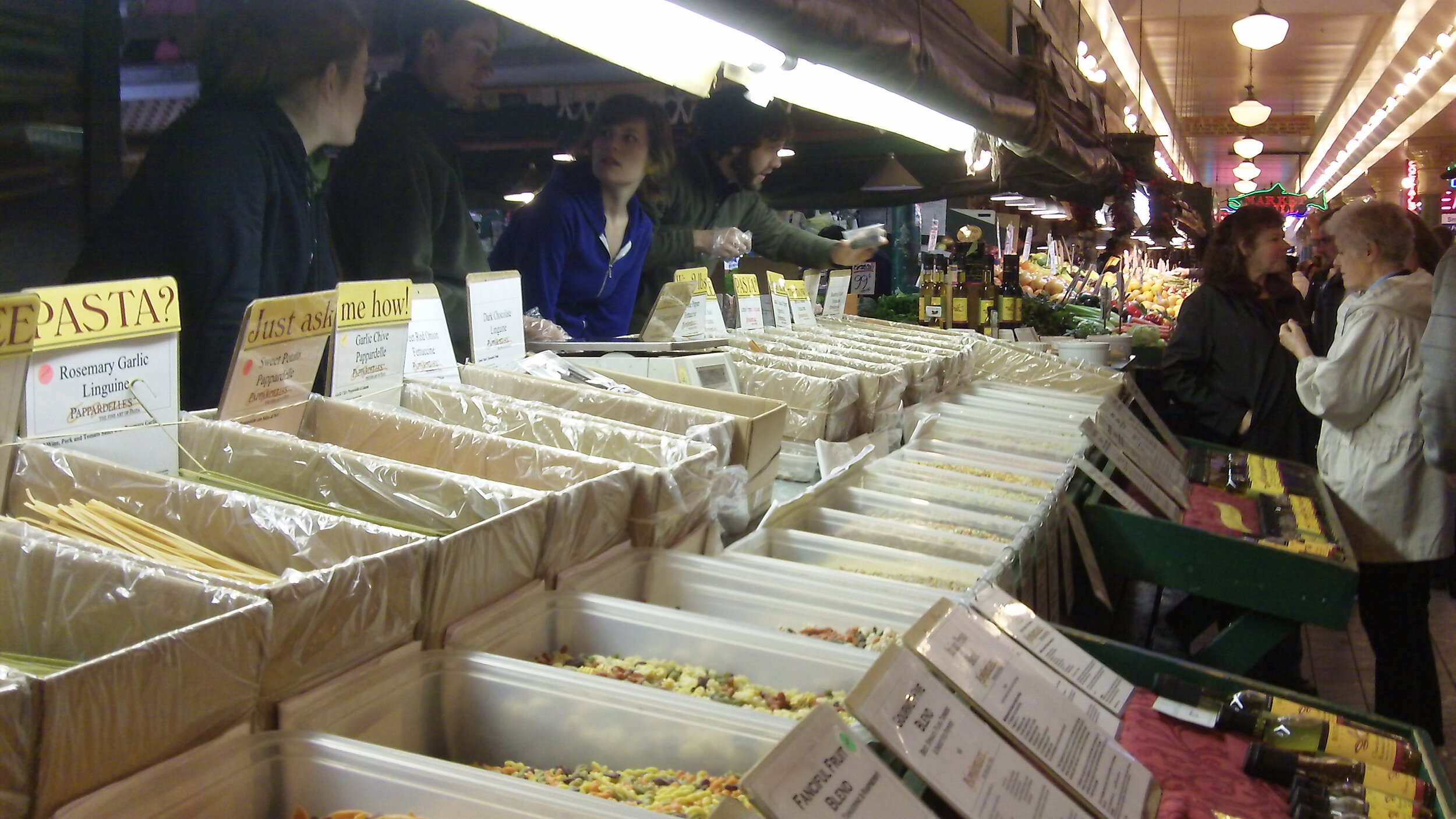To market, to market, to buy a fat pig,
Home again, home again, dancing a jig;
To market, to market, to buy a fat hog;
Home again, home again, jiggety-jog;
To market, to market, to buy a plum bun,
Home again, home again, market is done.
~~ Mother Goose
To my way of thinking, cities are good for two things. One is professional baseball.
After what the owners and players did to baseball last year (1993), urban life's only advantage over country living is the farmers market.
Sure, there are farmer's markets in smaller communities offering an abundance of local produce. And there's nothing quite like a roadside fruit stand for fresh-picked peaches, cukes or corn.
But you could take the same produce, the same catch of fish, and the same baked goods on a smaller scale and never be able to recreate the ambience of a Pike Place, the color and fragrance of a French Market, or the teeming symphony of a New York City greenmarket. It's like the difference between the minor leagues and the majors: nothing compares to The Show.
I can get by just fine without Seattle's traffic problems, its gangs or its high-rise office buildings. But I yearn for Pike Place Public Market.
For a year in the late 1980s Pike Place was part of my daily routine. Morning began with a newspaper from Read All About It and coffee at The Sound View Cafe. Then I'd stroll slowly past the Pike Place Fish Company where vendors shouted over crates of newly arrived salmon. With an eye toward dinner, I'd assess the day's catch of sockeye or chum or silvers, consider again the unsightly Puget Sound goeduck clam, and ponder the possibilities for smelt, butterfish or Dungeness crab.
By noontime the market would be aflood with shoppers. I often took lunch nearby and visited the food stalls either coming or going, and sometimes both. Every time there was some new discovery, like a basket of Northern Spy apples or Peruvian potatoes or bottles of goat milk.
Mornings are best for beating the crowd, getting a parking space, and buying crisp salad greens. Afternoons are best for bargains. I bought in the afternoon mostly, as vendors were near to closing and "giving good weight" (generous on the scales), and each evening's meal was shaped with those purchases.
Farmer's markets like Pike Place, full of shops and vendors and paying customers, don't happen by accident. The best are carefully shaped over many years to fit the community's needs, both in the products they offer and the times they are available. Pike Place began in 1907 with five farmers in wagons who sold out in less than an hour; today it's open six days a week with lots of seafood, organic veggies, and seasonal fruit.
Like baseball, a farmer's market must care for its fans, be sensitive to their tastes and respectful of their habits. Become a part of their ritual and they'll be yours for generations. Take away their favorite vendors, or shut down in the midseason when tomatoes and melons and clams are at their best, and you may lose them forever.
by Michael Hofferber. Copyright © 1994. All rights reserved.

